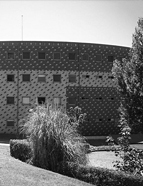

Hence, few authors during the 16th and 17th centuries explored the antiquities of Lusitanian law. Notably, however, the historical angle of public law awakened considerable interest. Under the auspices of the humanist revival, André de Resende, a multifaceted erudite character, an archaeologist and composer of merit, who was on close terms with Erasmus and Nicolau Clenardo, devoted himself to the organisation of ancient Hispania and is rightfully considered the founder of peninsular public law history. The desire for Restoration also saw a group of jurisconsults dedicated to various historically legitimist public issues in support of the kingdom's independence, with João Pinto Ribeiro emerging as a prominent figure. Entering the 18th century, historiography benefited from a renewed impetus in the wake of the establishment of the Royal Academy of History and the diligent efforts of its members.
However, it was not until the second half of the 18th century that the history of law made its way into the curriculum of the legal faculties of Coimbra. This pioneering inclusion was significantly influenced by notable advances in the field of historiography, accompanied by a long-demanded philosophical definition of the discipline that moved away from a systematic tendency towards personalist narratives. In the Baroque approach, the past was only fascinating for the grandeur of the notable actions of distinguished figures, with attention merely skimming the surface of memorable facts. On the side of legal science, a significant renewal was witnessed, due to a commitment to rationalist legal thought within the framework of an Enlightenment that sought to reflect the historical side of its era in law. History, as has been aptly written, had now taken the place of theology, insofar as it became the court of the world. It grew in critical terms and in the breadth of its adopted broad cultural perspective.
Enlightenment ideas were only flickering then in Portugal while they were already shining brightly abroad. It should be added that the Enlightenment did not assume uniform contours. The model adopted by Catholic countries like Spain and Portugal, which had its radiating centre in Italy, presented distinctive traits. The Enlightenment message was received here through the words of Luís António Verney which, due to a close connection with Muratori, bore unmistakable Italian features. Verney criticised the educational system vehemently, with the flair of a forceful libel. Regarding the Faculties of Law and Canons, he criticised harshly the scholastic or Bartolist orientations, defending the historical-critical or Cujacian approaches. At the same time, he advocated for the adoption of the synthetic-compendium expository method taken from the German Heineccius, a jurist whose merit grew in the eyes of those marked by foreign influences (estrangeirados) for the attention he dedicated to the history of Romano-Germanic law.
